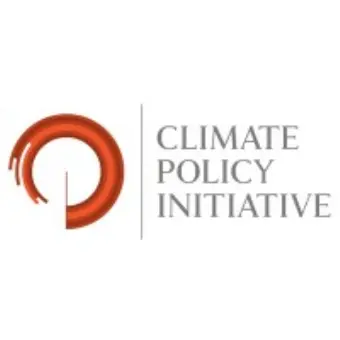Analyst

Beijing Climate Policy Initiative
This job is no longer accepting applications
See open jobs at Beijing Climate Policy Initiative.See open jobs similar to "Analyst" Climate Draft.Location: Rio de Janeiro, Brazil; London, UK; or Washington, DC
Reports to: Senior Analyst, CCFLA
Background
ABOUT CLIMATE POLICY INITIATIVE
Climate Policy Initiative (CPI) works to improve the most important energy and land use policies around the world, with a particular focus on finance. CPI supports decision makers through in-depth analysis on what works and what does not. CPI works in places that provide the most potential for policy impact, including Brasil, Europe, India, Indonesia, and the United States. Our work helps nations grow while addressing increasingly scarce resources and climate risk. This is a complex challenge in which policy plays a crucial role. CPI is a small but dynamic organization, with a global reach and an entrepreneurial culture. We work hard to maintain an idea-driven, collaborative environment across all our teams.
CPI’s Climate Finance program guides decision makers who are working to ensure economic growth while addressing increasingly scarce resources and climate risk. Enough capital exists to transition the world into a low-carbon, climate-resilient economy. However, current investment in climate-friendly development falls far short of the need. CPI works to redirect finance from high- to low-carbon activities and helps decision makers use their resources wisely. We provide much-needed information on climate finance flows, apply in-depth analysis to guide decision makers on their efforts, and support innovation in finance to address investors’ needs and lower costs.
ABOUT THE CITIES CLIMATE FINANCE LEADERSHIP ALLIANCE
Trillions of dollars will be required to help cities build the low-emissions, resilient infrastructure necessary to combat and react to climate change. The Cities Climate Finance Leadership Alliance (CCFLA) is the only multi-level and multi-stakeholder coalition aimed at closing the investment gap for urban subnational climate projects and infrastructure worldwide.
Today, CCFLA has 84 Members committed to deploying finance for city-level climate action at scale by 2030. Its members represent many of the world’s largest city and subnational networks (C40, ICLEI, UCLG, GCOM, among others), major public and private financial institutions (World Bank, AFD, KFW, among others), governments, and international organizations.
CCFLA engages its members in knowledge, collaboration, and advocacy activities aiming to help close the urban climate finance gap. More specifically:
- Knowledge: CCFLA produces practical knowledge products that can help Members advance solutions to close the urban climate finance gap.
- Collaboration: CCFLA fosters connections and cooperation among Members engaged in scaling investments in urban climate infrastructure.
- Advocacy: CCFLA uses its expertise to inform international discussions and amplify messages from our members on the main climate forums.
Position Summary
CPI offers a challenging environment that requires independent thinking, collaboration, and pragmatic problem solving. The role of Analyst supports the deliverables of CPI’s international Cities Climate Finance Leadership Alliance (CCFLA) work stream, focusing on issues such as tracking and analyzing urban climate finance, supporting subnational access to climate finance, and engaging and supporting CCFLA members. This role will specifically support CCFLA’s upcoming projects tracking urban climate finance in Brazil, in addition to other global projects as needed.
Under the supervision and guidance of the CCFLA team, the Analyst undertakes robust and careful analysis, drawing on methodologies from micro- and macroeconomics, public policy, regulatory economics, finance, behavioral science, risk management, statistics, law, engineering, and other academic and commercial disciplines.
In conducting research and analysis, the Analyst is required to work in close cooperation with a range of international partners from the policy, finance, and corporate spheres, as well as with CPI teams throughout the world. Previous work experience with climate policy, finance, or regulation, and proven sectoral interest in agriculture/land use, cities, and/or gender equity are valuable assets.
This job is no longer accepting applications
See open jobs at Beijing Climate Policy Initiative.See open jobs similar to "Analyst" Climate Draft.